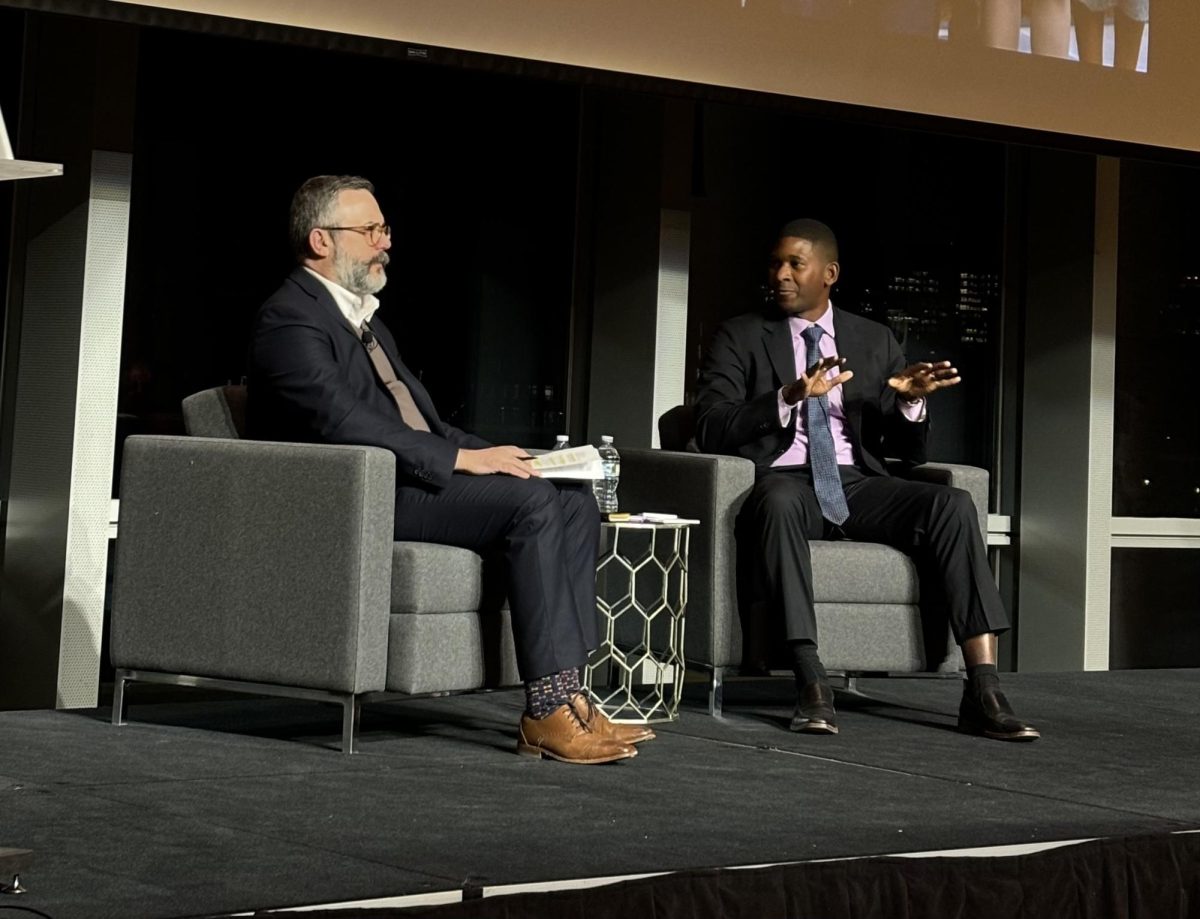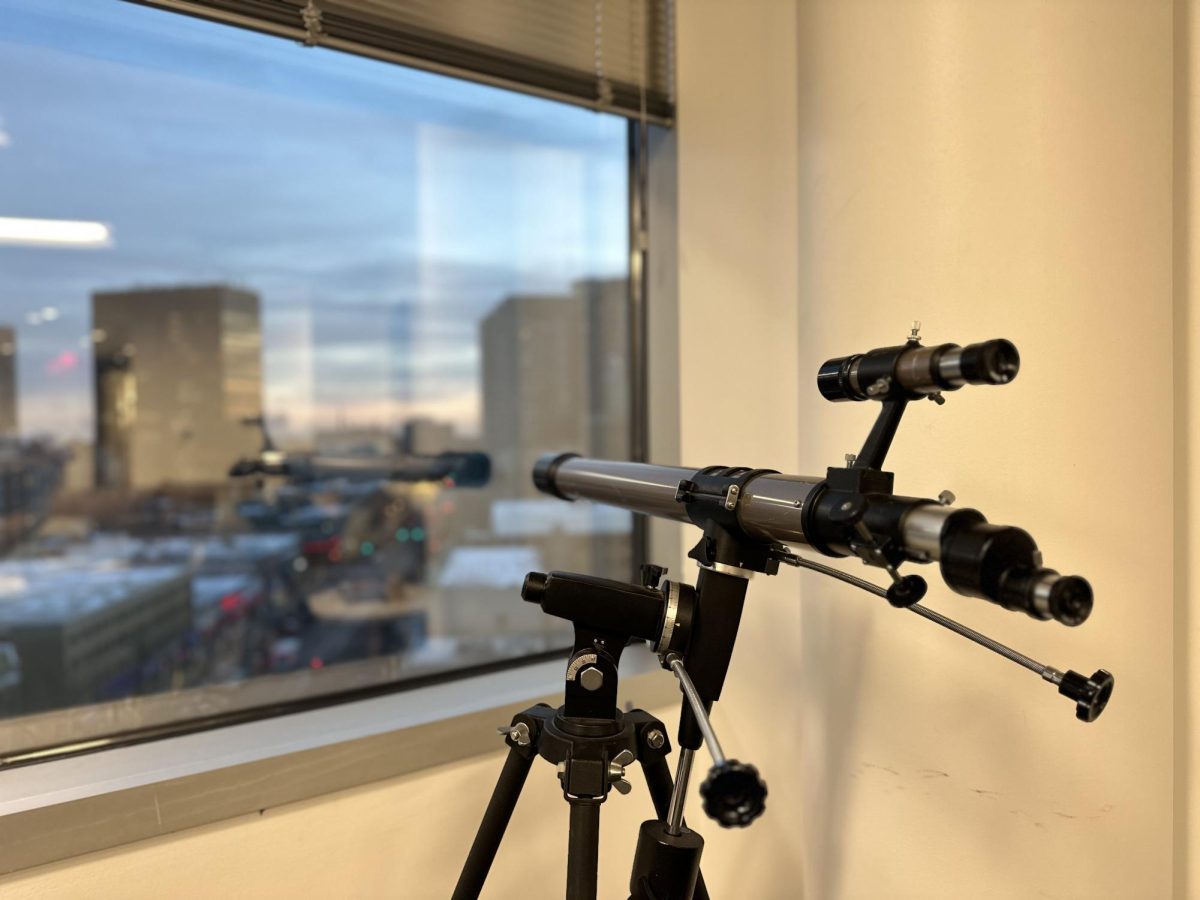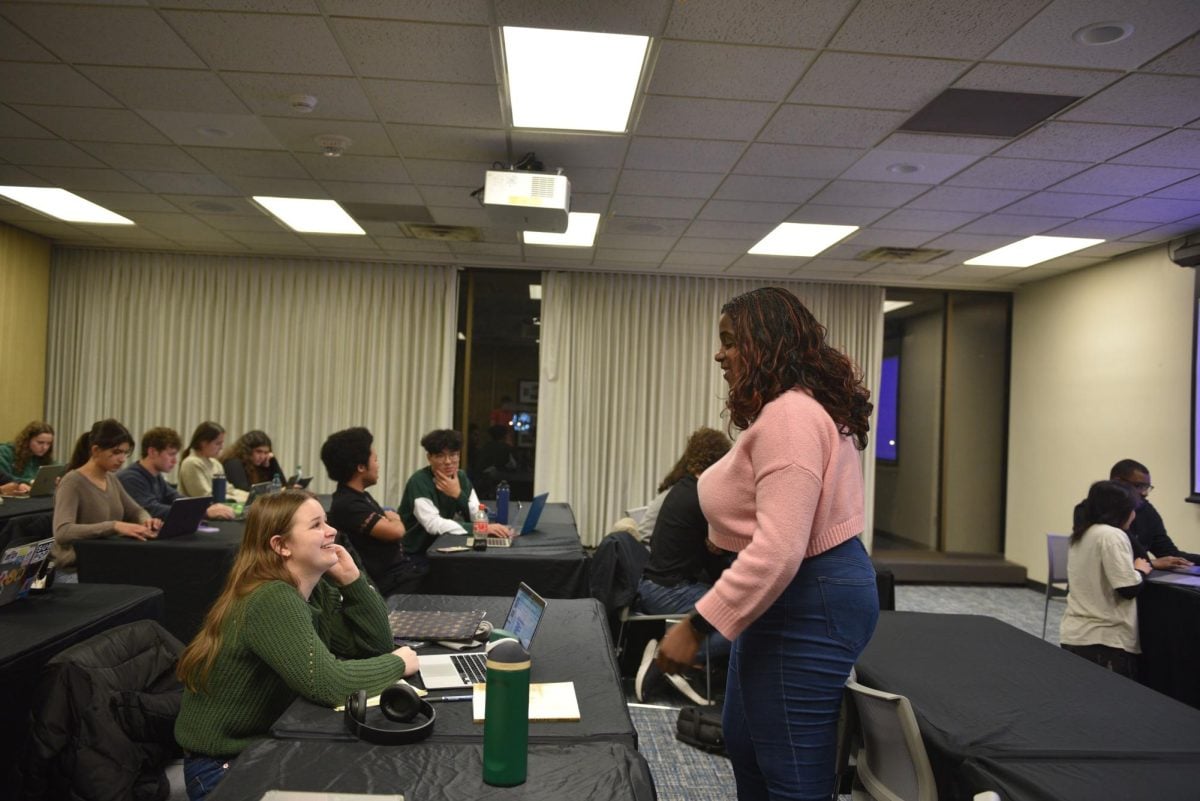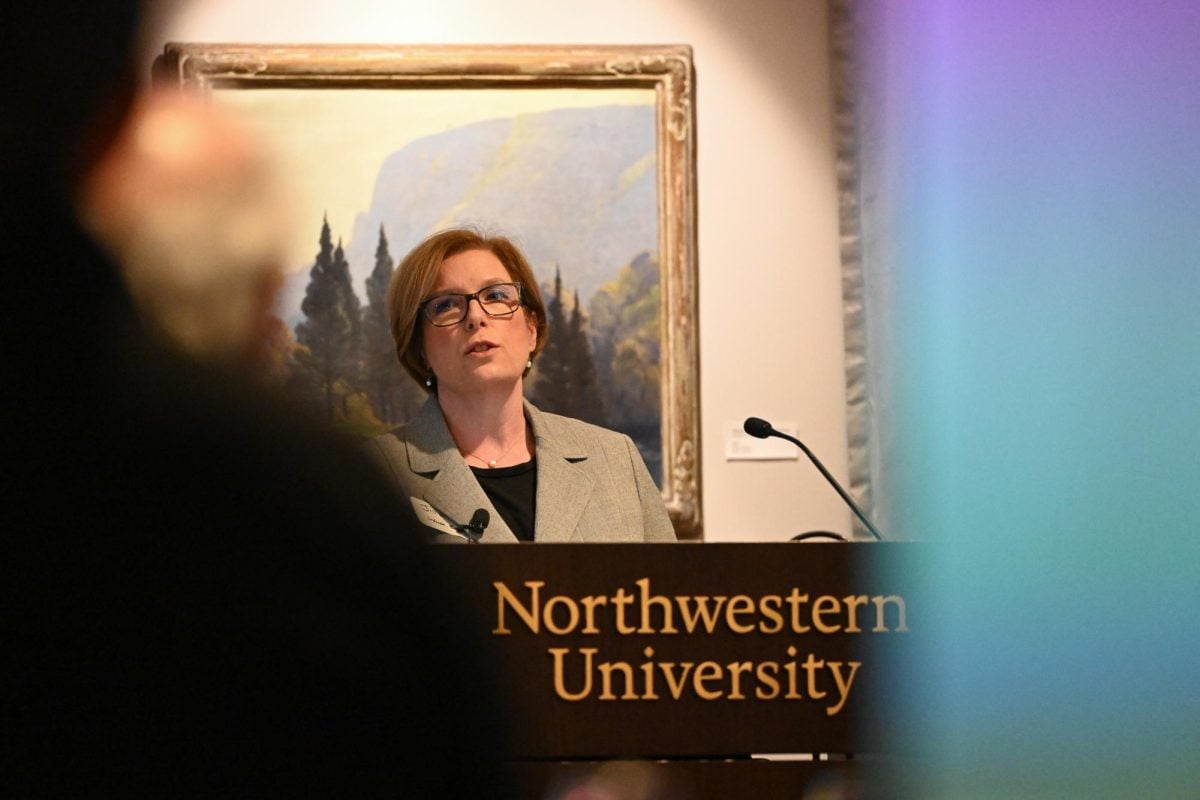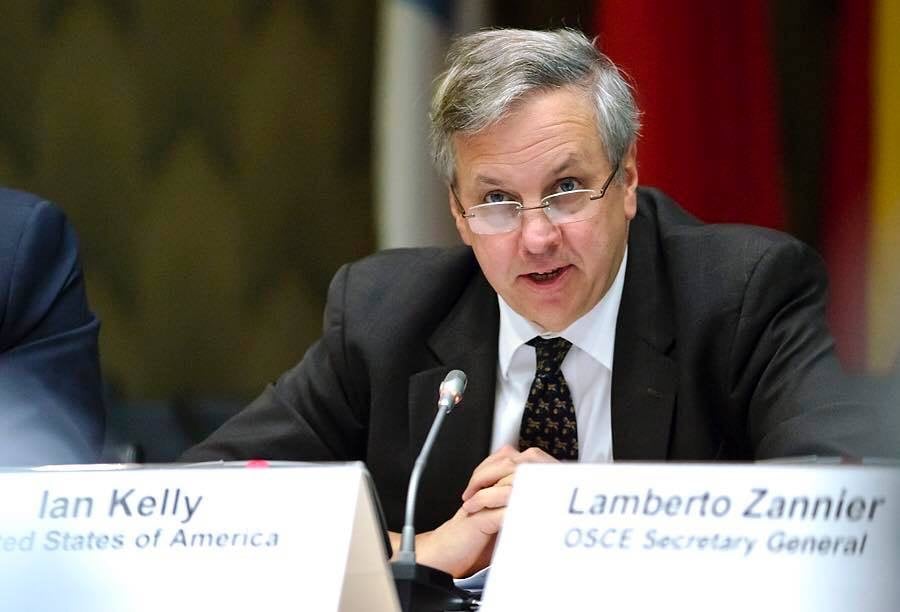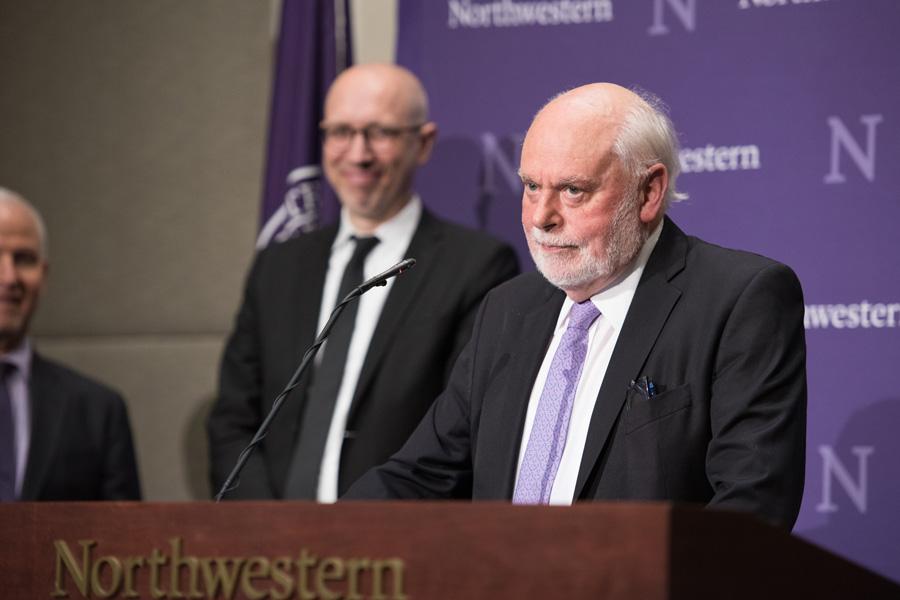Northwestern Institute for Policy Research Director and Weinberg Prof. Andrew Papachristos interviewed SESP Prof. Kirabo “Bo” Jackson Thursday at 5 p.m. The colleagues spoke to a crowd of about 200 undergraduates, graduate students and faculty at the Kellogg Global Hub.
Jackson specializes in education policy and labor economics and started serving on the White House Council of Economic Advisors for President Joe Biden in August 2023. He spoke with Papachristos about his experience and answered various questions from the audience.
The conversation began with Jackson explaining what the CEA is, his role there and the main responsibilities of the team. He said there were four critical objectives they had to focus on.
“We had to understand what was going on in terms of the economy and communicate that to the White House,” Jackson said. “Another thing was always looking around the corner. The White House wants to make sure we maintain stability, so we’re always looking for things that could derail the progress of the economy.”
Jackson said his other roles were related to crafting policy, though the CEA had no direct power. Additionally, he said he and his team were responsible for writing the annual Economic Report of the President, which provides an overview of the nation’s economic progress.
Jackson said he worked on a number of issues during his appointment but mostly focused on analyzing the childcare market. He said he specifically looked into what happened when the childcare stabilization money allotted during the COVID-19 pandemic ran out in October 2023.
“People were saying it would be catastrophic for the economy, but we found it was not so much a cliff as it was a shelf,” Jackson said. “Maternal labor supply went down to what it was before.”
Papachristos also asked Jackson what he wanted the public to know about inflation, to which he responded that it’s important to understand that inflation is normal and happens in a healthy growing economy.
What’s important to watch, he says, is making sure wages rise at a faster rate than inflation.
The second half of the conversation focused on the relationship between research and policymaking. Papachristos said that as the Director of the Institute for Policy Research, he is trying to figure out how research can be more impactful at a higher level.
“You don’t get much more impactful than this for an academic,” Papachristos said.
Jackson said he was pleasantly surprised to find out how many policy decisions are supported by research. He said the main difference between academia and policymaking is how conceptual academia is, whereas in policymaking, every detail matters.
“(Research) can seem quite divorced from the real world, but this stuff does have real-world impact,” Jackson said. “It’s possible to create change by either working in government or in research.”
He also said his background in academia led him to want to explain things to their fullest extent — but when dealing with the press he was told to keep things short and terse, avoiding any unnecessary jargon.
Weinberg junior Ashwin Krishnaswamy said he found the event engaging. He said he was particularly interested in seeing how Jackson’s work in policy is going to shape his future career as an academic.
“It was really interesting to see how Prof. Jackson has transitioned from academia to policy and then back again,” Krishnaswamy said. “I was particularly interested in seeing how his work in policy is probably going to shape his future career as an academic.”
Jackson said he plans to broaden his research to include topics he wouldn’t have looked at before his experience on the CEA, like housing policy and small businesses. He said he hopes to do more work in the space between academia and policymaking.
“For those involved in the research world, that stuff matters and absolutely influences the conversation,” Jackson said. “Hopefully that’s inspiring to you.”
Email: [email protected]
Related Stories:
— Northwestern professor named 2016 Andrew Carnegie Fellow
— Four NU faculty members elected to the American Academy of Arts and Sciences
— NU Prof. Rob Voigt quantifies racial disparities in news coverage on gun violence
